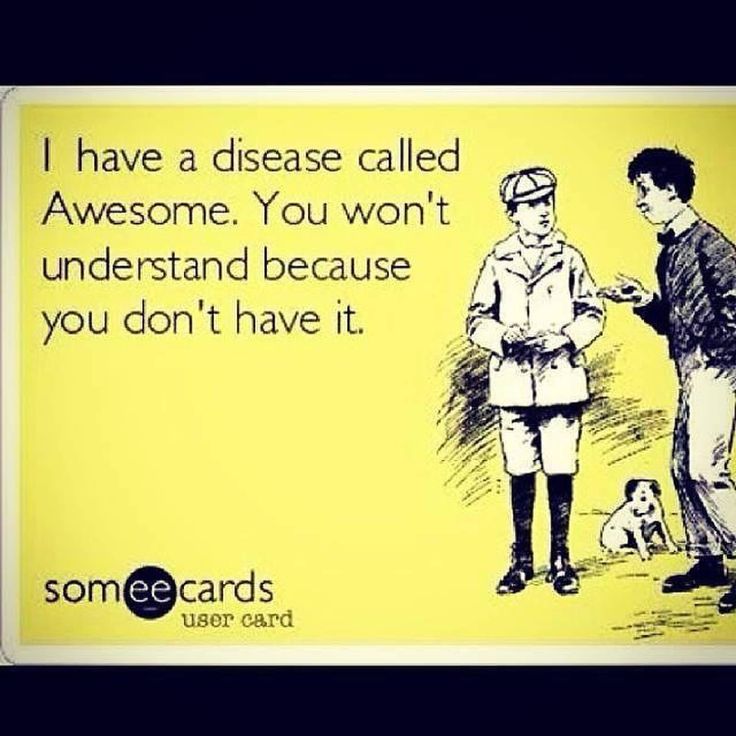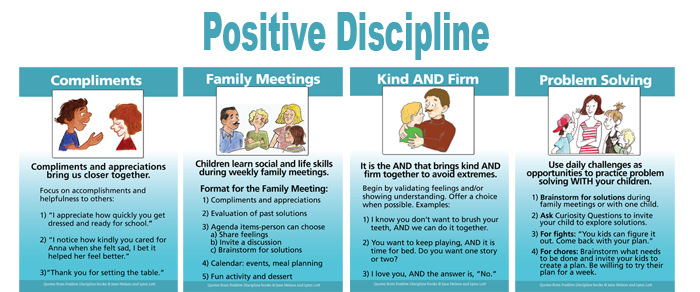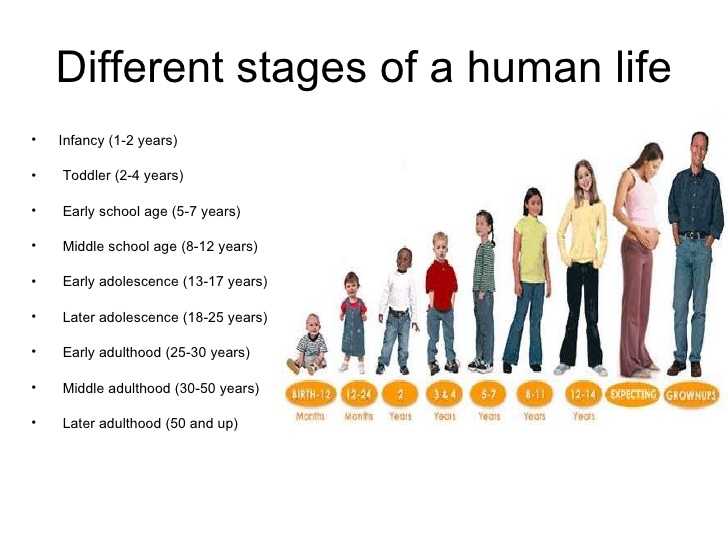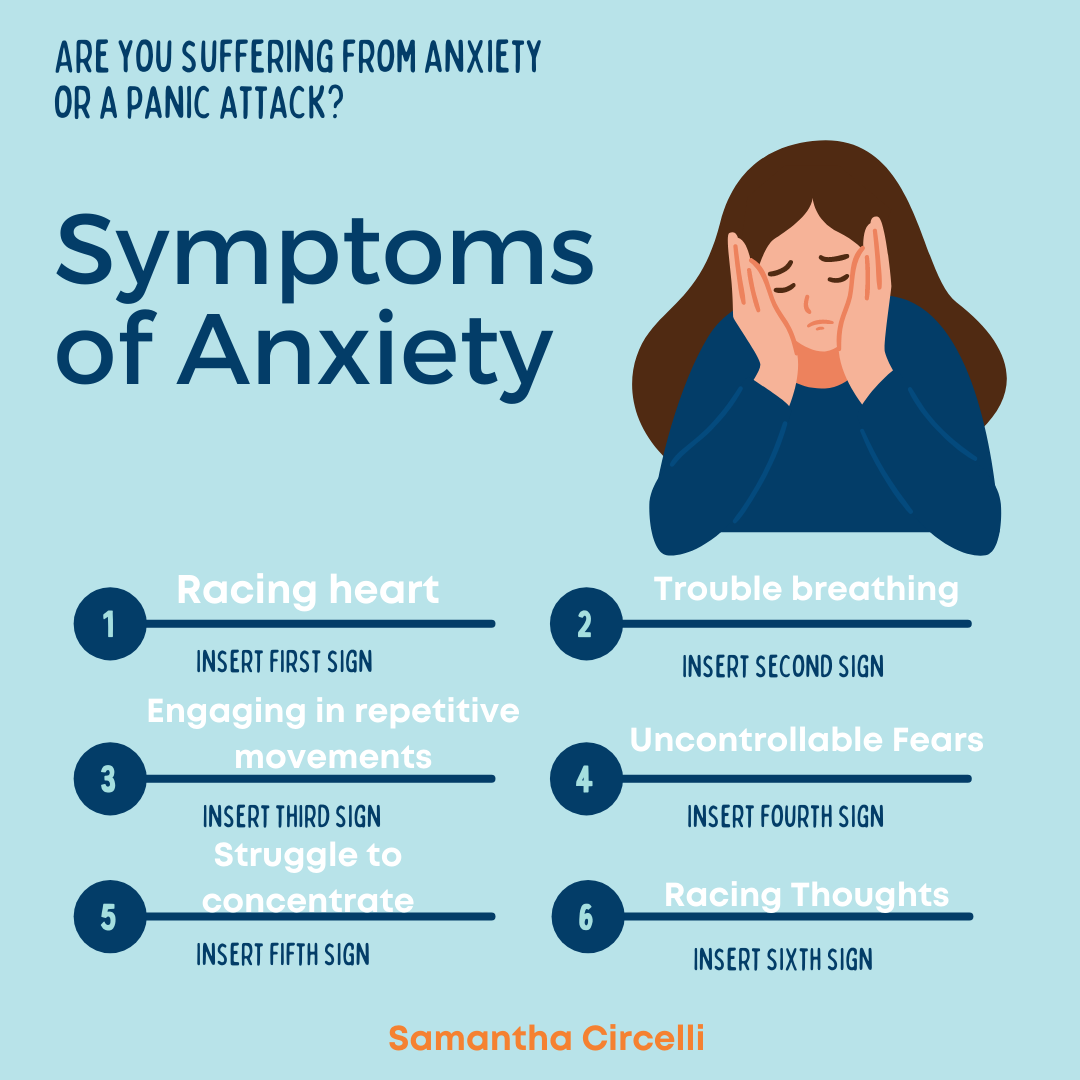Help partner with anxiety
7 Ways to Support an Anxious Partner
Dealing with persistent anxiety can be difficult for anyone. Whether it's negative thought patterns, worries or a nagging fear of social interactions, an anxiety disorder can disrupt nearly every part of life.
These disorders don't cause difficulties only for the person who has anxiety, though. They can also put significant strain on their close relationships. When one partner has an anxiety disorder, it can affect the other partner's:
- Emotional well-being: When one partner must bear more of the emotional weight of the relationship, whether in child-rearing or providing general emotional support, it can negatively affect their emotional well-being.
- Social life: People with anxiety often avoid social outings, and this may cause difficulties for a partner who values spending time with others.
- Finances: If anxiety makes it difficult for one partner to find or hold a job, it may require the other partner to work or earn more to compensate for financial shortfalls.
- Everyday activities: When one partner has an anxiety disorder, day-to-day life may become difficult for the couple. If the other partner has to take on more daily tasks, such as grocery shopping, cooking, cleaning and childcare, it may cause resentment and fatigue.
Over time, these issues can add up, putting serious strain on a relationship. The partner who doesn't have anxiety may find it difficult to understand what the other partner is going through. If a couple in this situation wants to foster balanced emotional-wellbeing, it's important to know how to deal with anxiety in a relationship.
Practical ways to support an anxious partner
Helping a partner deal with their anxiety can be difficult. Here are a few tips that may help as you seek to provide support.
Do your research
According to the Anxiety and Depression Association of America, people with generalized anxiety disorder are less likely to consider themselves in a "healthy and supportive" relationship.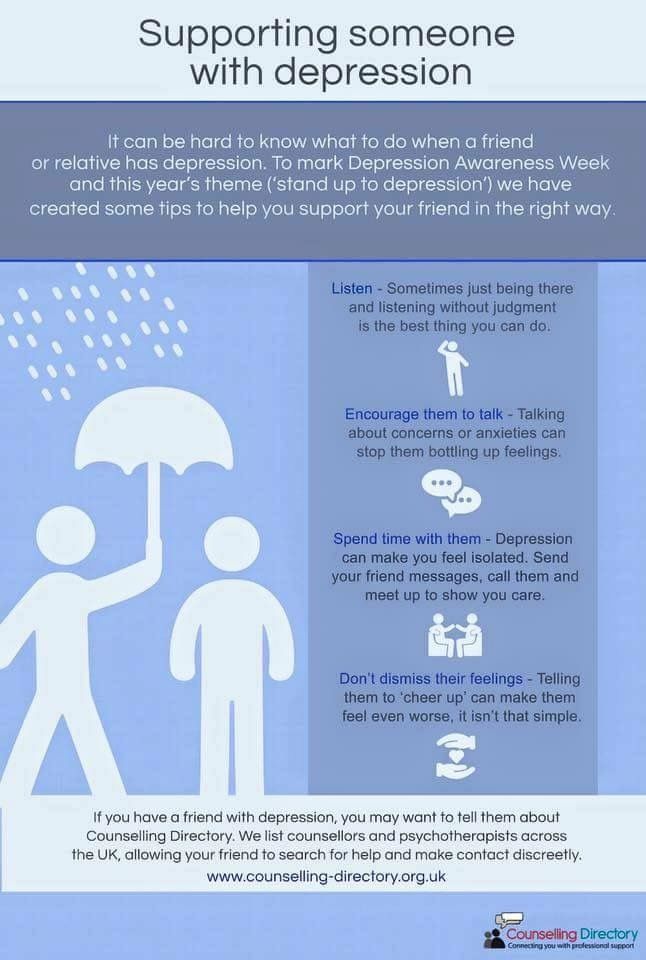 Often, their partner doesn't understand what they're going through or why simple tasks can be so difficult for them.
Often, their partner doesn't understand what they're going through or why simple tasks can be so difficult for them.
To someone who doesn't have severe anxiety, their partner's struggles may seem overblown. But chronic anxiety can cause debilitating issues, from sleep problems and breathing difficulties to a constant feeling of tension or exhaustion.
Before you can truly provide support for a partner with an anxiety disorder, you must seek to understand how anxiety affects them and what you can do to help alleviate the symptoms.
Recognize the signs that your partner is anxious
Anxiety can manifest in various ways, and different anxiety disorders may cause different symptoms depending on the situation. For instance, someone with agoraphobia may have their anxiety triggered by crowds, while someone with social anxiety disorder may even fear one-on-one social interactions.
Whatever the nature of your partner's anxiety disorder, it's important to learn how to spot anxiety symptoms. For many people, anxiety feels like any of the following:
For many people, anxiety feels like any of the following:
- Being nervous, tense or restless
- A sense of panic or feeling of danger
- Sweating
- Fatigue or weakness
- An increased heart rate
- Hyperventilating
- Difficulty sleeping
- Uncontrollable worry
- An inability to concentrate
- Stomach pains or other gastrointestinal problems
- Wanting to avoid situations that trigger anxiety
It's not unusual for someone to feel anxiety now and then. However, if you notice that your partner is regularly experiencing several of these anxiety symptoms, they may need to see a mental health professional to determine if they're dealing with an anxiety disorder.
Validate their experience
Validation is a critical part of therapy for many types of mental disorders. Simply acknowledging what your partner is feeling or experiencing helps them feel understood and supported, and this sets the stage for them to manage anxiety.
Emotionally validating someone's experience requires expressing empathy and understanding rather than judgment. You don't have to agree with their perception of the situation, but it's important to connect with them.
Here are some examples of validating statements:
- "I bet that's hard."
- "I see why you feel that way."
- "That must be frustrating!"
- "I'm here for you."
Whatever you do, don't minimize their feelings. When your partner isn't sure how to deal with their anxiety, knowing they have your support can make a huge difference in how they approach the problem.
Witthaya Prasongsin/Getty ImagesDon't try to fix everything
Although it's tempting to try to "fix" a partner with anxiety, this approach rarely goes well.
Think about it: How much would you appreciate it if they tried to "fix" you? You'd probably start to feel like they're just downplaying your struggles or that you were always failing at being a good partner.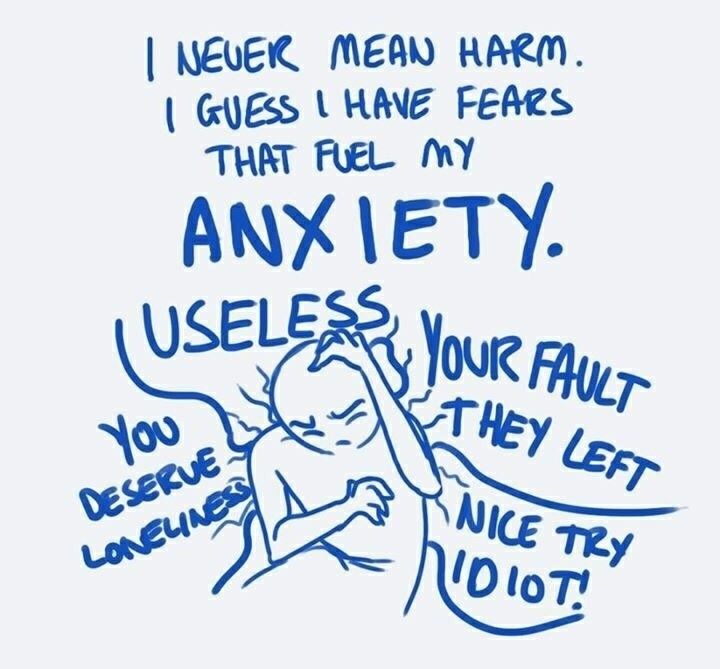 When couples start operating this way, it usually leads to each focusing on the other's faults and trying to play the role of a therapist -- a job that doesn't foster equal partnership in a relationship.
When couples start operating this way, it usually leads to each focusing on the other's faults and trying to play the role of a therapist -- a job that doesn't foster equal partnership in a relationship.
Rather than trying to solve all your partner's problems, the best thing you can do is to provide a consistent, listening ear and show them that you support them, rather than pressuring them to live up to your ideals, help them form their own vision of an anxiety-free life and offer them the encouragement they need to strive for it.
Prioritize communication
As far as relationship problems go, communication breakdowns are one of the biggest. A failure to communicate can cause difficulties in any relationship, so it's especially important to prioritize if you're already having trouble.
Simply talking to each other isn't necessarily communicating, either. True communication involves both partners listening and seeking to understand each other. Instead of using "you" statements and telling your partner what they should feel or how they should react, try using "I" statements to share what you think and perceive, and to ask questions about what they're going through.
For instance, instead of "You need to calm down," try saying, "I see you're upset, how can I help?" Sometimes, that simple shift -- from focusing on them and their reactions to you and your willingness to empathize and help -- can make a world of difference.
Set boundaries
Living with an overly anxious spouse or partner can be challenging. However, it's important to remember that loving your partner doesn't require you to set your own needs aside all the time.
When you fail to set boundaries for yourself, you introduce unhealthy, codependent dynamics into the relationship. Instead of encouraging your partner to seek the help they need to deal with their anxiety, you make them depend on you to solve problems. This can actually drive them deeper into anxiety and behaviors that feed it.
Recognize your own needs and limitations -- and respect those by setting boundaries. For instance, say you thrive on spending time with others, but your partner is too anxious to be around people.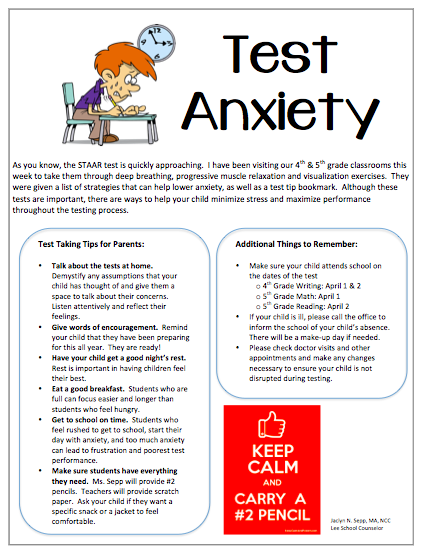 Explain to them that this is important for your own well-being and that you'd like to schedule time with friends even if they can't be there.
Explain to them that this is important for your own well-being and that you'd like to schedule time with friends even if they can't be there.
Encourage them to seek therapy
Again, it's important to remember that it's not your job to "fix" all your partner's problems. Someone dealing with an anxiety disorder ultimately needs professional help to learn how to manage their anxiety.
Counseling and therapy can help those with anxiety. By learning to examine their ways of thinking and introduce different behaviors into their lives, they can adopt healthier ways of dealing with the factors that commonly spark their anxiety. And, if necessary, psychiatrists can prescribe medication to help with the process.
Read more: 8 Essential Question to Ask Your New Therapist
These days, there are many options for finding counseling and therapy -- even ones that don't require insurance. And, for someone anxious about going out, many types of therapy are even available online. Offer to help your partner find the setup that will best help them cope with their anxiety.
Offer to help your partner find the setup that will best help them cope with their anxiety.
Understanding your role in your partner's anxiety
Dealing with anxiety in a relationship can be incredibly difficult, but it's a challenge many couples can overcome by shifting perspectives and getting the help they need. Always start by remembering that you can't "cure" your partner's anxiety any more than they can force you to overcome your own problems.
Healthy communication, practice and patience are the most important tools you can bring to the task. When your partner knows you're there to support them, they'll be much more willing to listen and seek the help they need.
Not sure where to look as you get started? Here are a few great resources that can help you connect with help in your area:
- National Alliance on Mental Illness
- Mental Health America
- National Institute of Mental Health
- Mental Health First Aid
The information contained in this article is for educational and informational purposes only and is not intended as health or medical advice.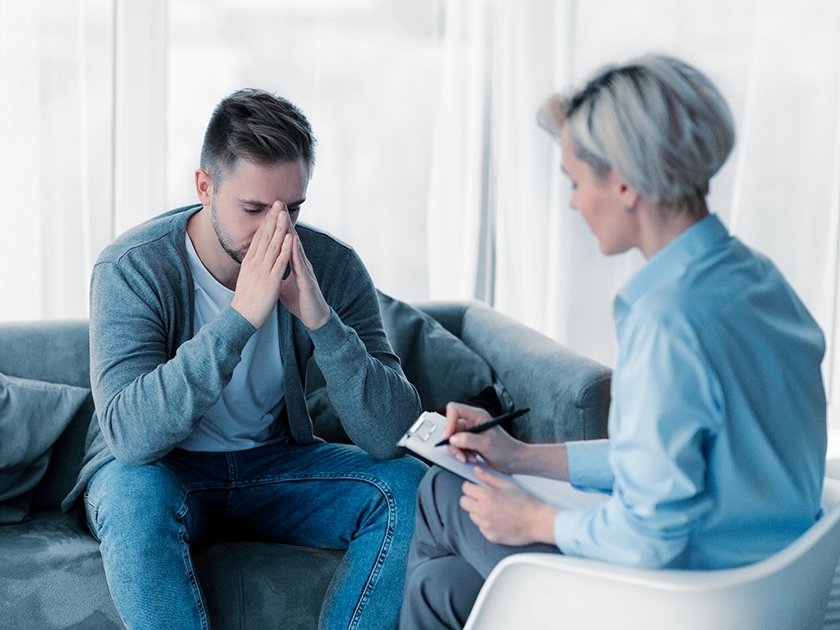 Always consult a physician or other qualified health provider regarding any questions you may have about a medical condition or health objectives.
Always consult a physician or other qualified health provider regarding any questions you may have about a medical condition or health objectives.
How To Help Your Anxious Partner — And Yourself : Shots
Hanna Barczyk
Living with anxiety can be tough — your thoughts might race, you might dread tasks others find simple (like driving to work) and your worries might feel inescapable. But loving someone with anxiety can be hard too. You might feel powerless to help or overwhelmed by how your partner's feelings affect your daily life.
If so, you're not alone: Multiple studies have shown that anxiety disorders may contribute to marital dissatisfaction.
"We often find that our patients' ... partners are somehow intertwined in their anxiety," says Sandy Capaldi, associate director at the Center for the Treatment and Study of Anxiety at the University of Pennsylvania.
Anxiety is experienced at many different levels and in different forms — from moderate to debilitating, from generalized anxiety to phobias — and its impacts can vary.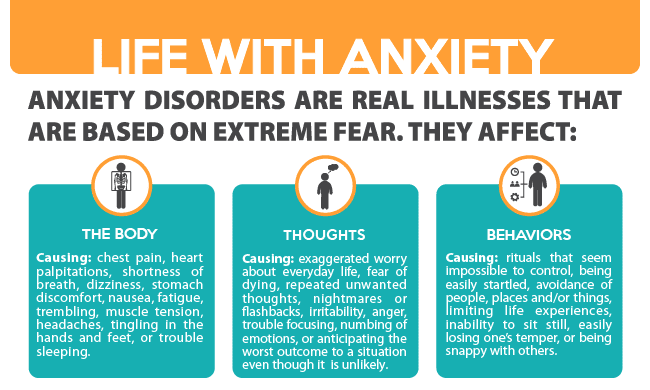 But psychiatrists and therapists say there are ways to help your partner navigate challenges while you also take care of yourself.
But psychiatrists and therapists say there are ways to help your partner navigate challenges while you also take care of yourself.
Start by addressing symptoms.
Because an anxiety disorder can be consuming, it can be best to start by talking with your partner about the ways anxiety affects daily life, like sleeplessness, says Jeffrey Borenstein, president and CEO of the Brain & Behavior Research Foundation in New York. Something as simple as using the word "stress" instead of clinical labels can help too. "Often people may feel a little more comfortable talking about stress as opposed to ... anxiety [disorders]," Borenstein says.
Don't minimize feelings.
"Even if the perspective of the other person absolutely makes no sense to you logically, you should validate it," says Carolyn Daitch, a licensed psychologist and director of the Center for the Treatment of Anxiety Disorders in Farmington Hills, Mich. Try to understand your partner's fears and worries, or at least acknowledge that those fears and worries are real to your partner, before addressing why such things might be irrational.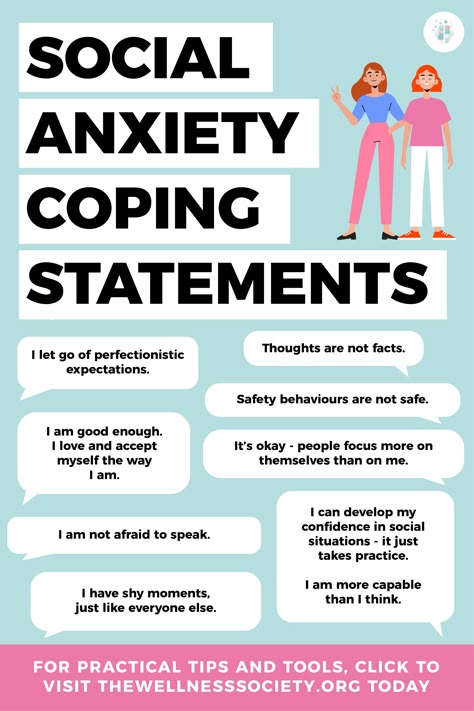
Anxiety doesn't have an easy solution, but helping someone starts with compassion. "Too many partners, particularly male partners, want to fix it right away," Daitch says. "You have to start with empathy and understanding. You can move to logic, but not before the person feels like they're not being judged and ... misunderstood."
Help your partner seek treatment — and participate when you can.
If your partner is overwhelmed by anxiety, encourage your partner to seek therapy. You can even suggest names of therapists or offices, but don't call the therapist and set up the appointment yourself, Borenstein says. You want the person to have a certain level of agency over treatment.
Capaldi says she often brings in a patient's partner to participate in therapy and to bolster the patient's support system at home. "The three of us — patient, partner, therapist — are a team, and that team is opposed to the anxiety disorder," she says.
But don't talk to your partner at home the way a therapist might. For example, don't suggest your partner try medication or ways of modifying behavior. "Let the recommendations about treatment come from the professional" even if you yourself are in the mental health care field, Borenstein says. "I personally am a professional, and I wouldn't [prescribe anything] to a loved one."
For example, don't suggest your partner try medication or ways of modifying behavior. "Let the recommendations about treatment come from the professional" even if you yourself are in the mental health care field, Borenstein says. "I personally am a professional, and I wouldn't [prescribe anything] to a loved one."
It can also be helpful to do some research on whatever form of anxiety your partner might be living with, Capaldi says (The National Alliance on Mental Illness' guide to anxiety disorders is a great starting point). "Many times, people with anxiety feel as if they're misunderstood," she says. "If the partner takes the time to research it a little bit, that can go a long way."
For tips on how to help your partner pick the right type of therapy, check out this guide from the Anxiety and Depression Association of America.
Encourage — don't push.
When your partner suffers from debilitating anxiety and you don't, your partner's behavior can be frustrating, says Cory Newman, a professor at the University of Pennsylvania's Perelman School of Medicine. But you should never patronize or diminish your partner's fears. Comments such as "Why can't you do this? What's your problem?" will probably be ineffective.
But you should never patronize or diminish your partner's fears. Comments such as "Why can't you do this? What's your problem?" will probably be ineffective.
Instead, try to encourage your partner to overcome the anxiety. "Channel your encouragement in a positive direction," Newman says. "Say something like 'Here's how it will benefit you if you can face [this] discomfort.' "
Daitch cites the example of someone with an immense fear of flying: "Start off saying, 'I really understand how scared you are of flying. It makes sense you'd be scared. You can't get off the plane if you have a panic attack, [you're] afraid you might embarrass yourself ... or it feels like you're out of control when there's turbulence.' See things from their perspective."
Then you can try to gently push your partner to overcome those fears.
Cultivate a life outside your partner's anxiety.
To maintain your own mental health, it's important to cultivate habits and relationships that are for you alone, such as a regular exercise regimen or weekly hangouts with friends. Have your own support network, like a best friend or a therapist (or both), for when your partner's anxiety overwhelms you.
Have your own support network, like a best friend or a therapist (or both), for when your partner's anxiety overwhelms you.
Partners definitely need support of their own, Capaldi says, "whether that means their own therapeutic relationship or just friends, family [and] other interests or activities that set them apart from the world of anxiety they might be living in."
And don't let your partner's anxiety run your family's life. For example, someone with obsessive-compulsive disorder, which is closely linked to anxiety disorders, might want family members to keep everything very clean or organized in arbitrary ways. Newman says it's important to restrict how much you will organize your household around your partner's anxiety — and not to indulge every request or mandate.
"Try to be respectful, but also set limits," he says.
Help your partner remember that the goal is to manage anxiety — not to get rid of it.
"A lot of people with anxiety disorders understandably view anxiety as the enemy," Newman says.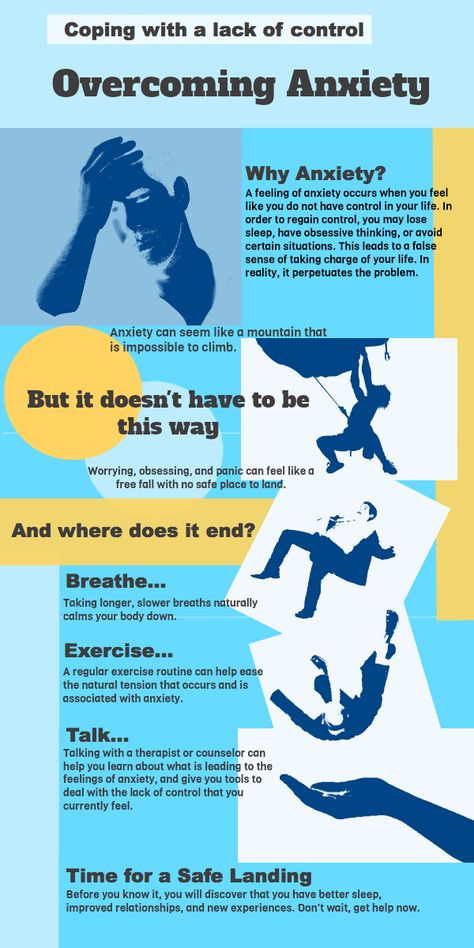 "Actually, it's not. The real enemy is avoidance. Anxiety causes [people] to avoid things — like applying to schools, flying to a cousin's wedding — [that can lead to] an enriched life. ... And that causes depression."
"Actually, it's not. The real enemy is avoidance. Anxiety causes [people] to avoid things — like applying to schools, flying to a cousin's wedding — [that can lead to] an enriched life. ... And that causes depression."
It can also reduce the number of life experiences you and your partner share.
"You can have an anxious life, but if you do things — you're doing that job interview, you're saying yes to social invitations, you're getting in that car and driving to the ocean even though ... you don't want to drive 10 miles — you're doing those things still," Newman says. "OK, you might need [medication] or therapy, but you're still living life."
Susie Neilson is an intern on NPR's Science Desk. Follow her on Twitter: @susieneilson.
Anxiety disorder: how to help a loved one during an attack
30,497
Antistress A person among people
Who better than people suffering from anxiety disorders themselves to tell what they experience during attacks and what kind of help and support from loved ones they need? Here's what they would like to tell loved ones about their constant struggle with anxiety.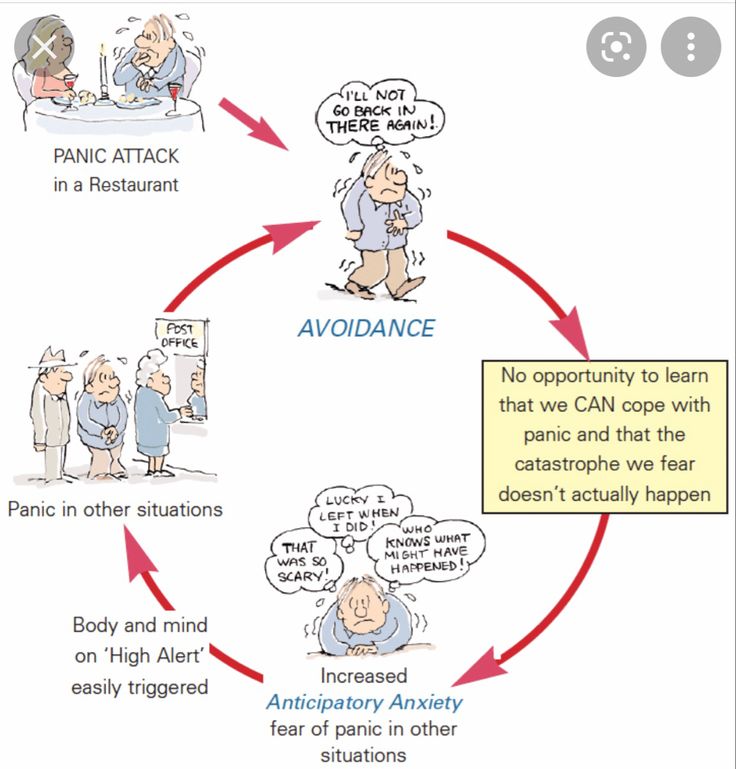
The best thing you can do is listen
“No one is asking you for answers. You can't "cure" us, even if you really want to. Just listen. Let them know that you are there and ready to help. Don't be too intrusive if you see that we are uncomfortable, but do not miss the moment when it is important for us to have someone hug us. - Allison L.
Your support means everything to us
“I've been dating a young man for over a year now. I know that it's not always easy to love me. I often get on his nerves and he can't understand why I'm behaving this way. But when I'm immersed in endless doubts and anxious reflections, it's important for me to know that he accepts our differences and continues to love me even in those moments when I myself find it difficult to love myself. - Melissa H.
Don't tell us "just calm down"
“It doesn't help, it just annoys. We are usually 1000% aware that our anxiety is irrational. Offering to calm down won't magically turn her off.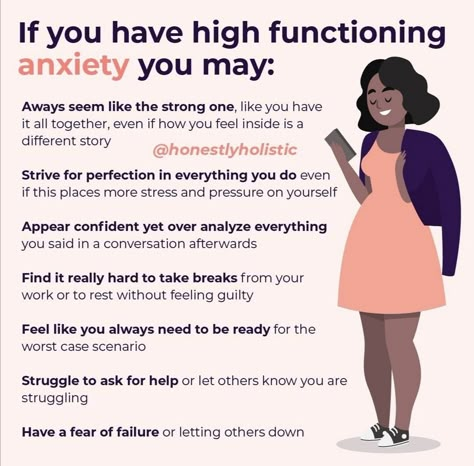 ” - Kelly R.
” - Kelly R.
Don't be offended by our behavior on difficult days
“Remember that our anxiety is not related to you, even if it seems to you that you have now provoked it. We just feel a tremendous overstrain. Part of the cause of anxiety is related to the work of our brain, and now nothing can be done about it. But there are also external factors that can be influenced. Help us to distract ourselves, it will help relieve anxiety. For example. suggest going for a walk.” —Ryan N.
Remember there are different types of anxiety
“My husband and I both suffer from severe depression and anxiety. However, our symptoms manifest differently, and what works for me may not necessarily help him. During difficult periods, I need physical contact, approval and support. And he needs to be left alone. If you can understand what a partner needs in a difficult moment, it will strengthen the relationship.” - Melissa M.
Anxiety is not always a bad thing
“When an anxious person sees your love, sometimes anxiety makes their love return deeper and more passionate.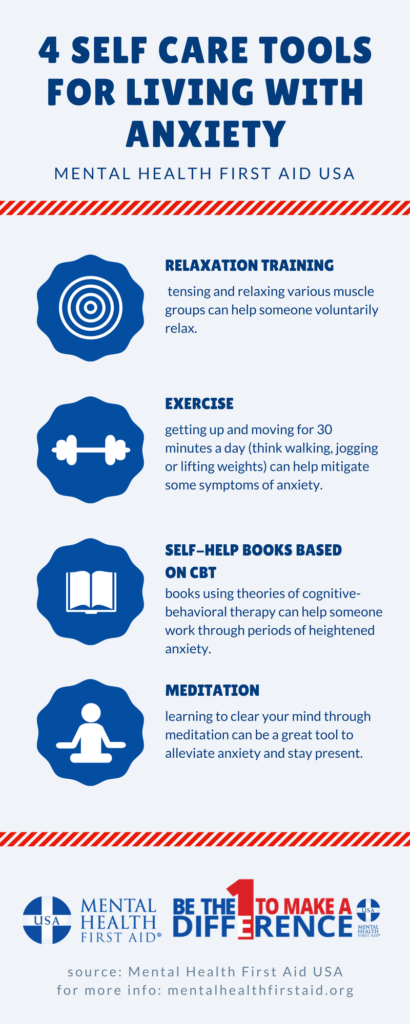 Neurotic energy is still energy. Anxiety also prevents me from making rash decisions. An anxious partner is likely to be very attentive and caring.” – Hope J.
Neurotic energy is still energy. Anxiety also prevents me from making rash decisions. An anxious partner is likely to be very attentive and caring.” – Hope J.
We are very grateful to you for your patience
“Patience is one of the most important human virtues. You do not always understand our anxiety, but the main thing is that you still show love and care. When my boyfriend and I come to a party, he occasionally comes up and quietly asks if I feel okay. It's an easy way to show you care.” —Christina R.
To better understand us, read about anxiety disorders
than physical illness. Remember what triggers our anxiety attacks.” — Melissa J.
You can't "fix" the problem, and that's okay
"My husband didn't realize right away that there was no need to 'do' something about an anxiety attack, sometimes it takes me a couple of minutes to deal with it" - Kayla D.
Take our worries seriously
“Before my anxiety disorder was diagnosed and treated, a couple of times during my panic attacks I thought I was having a heart attack or a blood clot. Both times my fiancé took me to the hospital and generally took the situation very seriously. He had no doubt that something was wrong with me, even when the doctors said that it was not life threatening. And it meant a lot to me. Anxiety is sometimes paralyzing, and it is important that there is someone who will not disparagingly say: “Yes, this is nonsense.” - Erika K.
Both times my fiancé took me to the hospital and generally took the situation very seriously. He had no doubt that something was wrong with me, even when the doctors said that it was not life threatening. And it meant a lot to me. Anxiety is sometimes paralyzing, and it is important that there is someone who will not disparagingly say: “Yes, this is nonsense.” - Erika K.
Remind us to take care of ourselves
“Encourage our activities with any health-improving practices – for me, for example, yoga, dancing and walking. You can join us or just help free up time for these activities - for example, by taking care of the children. - Sandra B.
Explain that it is not embarrassing to seek professional help
"Suggest that your partner see a therapist. Treating an anxiety disorder can sometimes save a life or make it better. This will have a positive effect on your relationship as well.” — Hope J.
Be there for hard days
“I'm dating a very understanding young man who knows that sometimes I need to hide in a closet and sit there for a while. He even bought a special blanket that he brings to me on such occasions. If I'm so anxious that I can't bring myself to get out of this safe hiding place, he sits there with me.” — Pixie M.
He even bought a special blanket that he brings to me on such occasions. If I'm so anxious that I can't bring myself to get out of this safe hiding place, he sits there with me.” — Pixie M.
Text: Nikolai Protsenko Photo Source: Getty Images
New on site
How to manipulate other people's memory: "bad advice" from a neurophysiologist
14 ideas for spending time with your family during the New Year holidays month, and then offered to remain friends"
"Sometimes I feel like I hate my daughter"
"Golden Rule": 8 tips to improve relationships - try it with a partner
What to do if your mother interferes with your life: an interview with a psychotherapist
Parents and children: the dangerous consequences of secret envy
How to help a person with an anxiety disorder
Psychologist's advice
Anxiety negatively affects a person's life. In a state of anxiety, we fall out of the "here-and-now" state.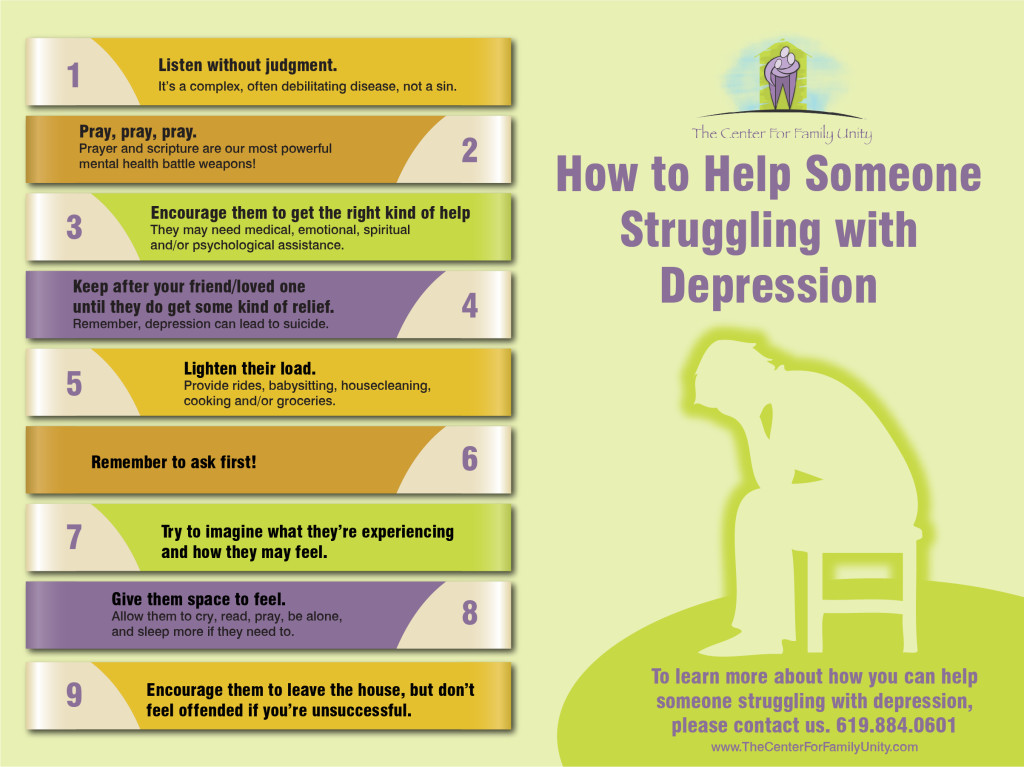 A person in anxiety can talk for hours about life's difficulties, stupid politicians, bad economy, etc. But, all these thoughts are not directly related to anxiety itself. Moreover, a person’s thinking is distorted during anxiety; during anxiety, we are prone to negative prediction of the future, catastrophization, rumination. nine0003
A person in anxiety can talk for hours about life's difficulties, stupid politicians, bad economy, etc. But, all these thoughts are not directly related to anxiety itself. Moreover, a person’s thinking is distorted during anxiety; during anxiety, we are prone to negative prediction of the future, catastrophization, rumination. nine0003
I would say that if a person experiences anxiety, he will always find something to worry about. Helping an anxious person is not about listening to his experiences for hours and not about starting to live his life instead of him. Help with anxiety is to support a person in getting rid of anxiety. It's not easy, but it's possible.
What is anxiety?
Anxiety is a rather popular symptom of our modern life. And we must distinguish between normal anxiety (a state that everyone experiences before a difficult task, public speaking, date) and anxiety disorder (when the state of anxiety clearly goes beyond the event that gave rise to it or becomes background).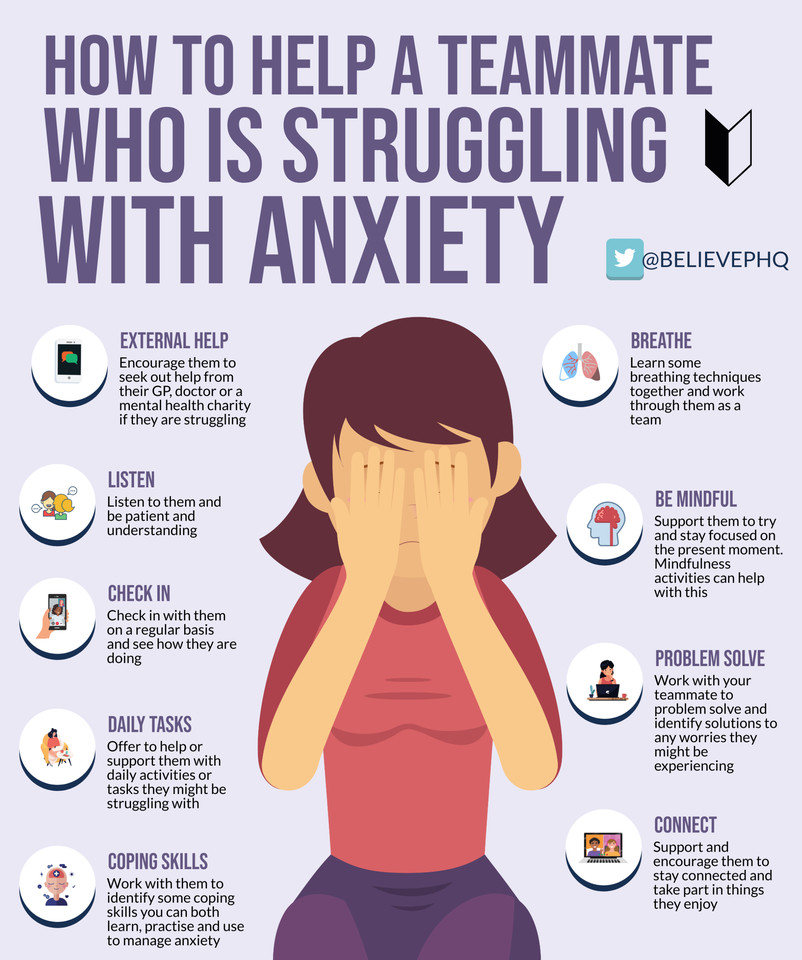 nine0093 This article can help identify an anxiety disorder:
nine0093 This article can help identify an anxiety disorder:
Signs of an anxiety disorder
Common symptoms of an anxiety disorder can include avoidance of the necessary action, focusing on negativity, sleep problems. It is difficult to observe when anxiety has taken possession of your loved one. Moreover, the anxiety of loved ones can often provoke anxiety in you.
How to help a person with anxiety?
Anxiety is a feature that is inherent in all people, and not a lack of your loved one. nine0103 Most of us sometimes experience anxiety, which, in general, is a useful emotion. Anxiety helps to see and eliminate potential threats, pay more attention to social implementation, and sometimes saves from deception from the outside. In fact, if anxiety increases a person's vigilance, it is beneficial and contributes to his successful interaction with others. If the object of concern is not obvious and there is nothing you can do to reduce the threat level, it can cause anxiety. When anxiety occurs, many people don't know what to do with it, and they resort to unviable anxiety blocking strategies. Such strategies can be: Anxiety management strategies can reduce anxiety in the short term, but in the long run, anxiety will only increase and may develop into more serious problems. These same strategies often interfere with relationships with loved ones and alienate others. For example, you. While anxiety and strategies to manage it can be unpleasant and repulsive to those around you, there are things you can do to help anxious people. nine0003 The following 7 ways to help someone with an anxiety disorder were first articulated by Alice Boyes in her book The Anxiety Toolkit. Anxiety can manifest itself in different ways in different people. Sometimes the manifestation of another person's anxiety can be very different from the forms you are used to. Psychologists know a variety of forms of anxiety manifestation: from avoidance and ignoring to hyperactivity and perfectionism. If you want to help a person with anxiety, you should study their habitual manifestations of anxiety. nine0003 Even the very realization that a person is not avoiding you, and thus experiencing anxiety, helps to behave more constructively and not to fall into emotions. This is a rather complicated process. It involves a close and sincere relationship with the one who is anxious. A person with an anxiety attack needs not only to recognize the presence of anxiety, but also to establish what kind of support is most suitable for him. Remember, this is exactly the case when it is better not to guess, but to ask. Often people who develop anxiety on the background of the termination of relations with a partner (his departure) are inclined to support in the form of active, activity moves. For example, assistance in planning, redistribution of duties. People with emotional addictions value actions and words more, aimed at strengthening their union with you. Phrases like, "We'll get through this together," "We're a team," "We love each other and we'll get through this together," can alleviate your partner's anxiety. nine0003 Do not take these options as a panacea for any case. These are templates and should be adapted to specific situations. Understanding that help can be offered in a variety of ways and it is best to choose based on your partner's personality helps reduce anxiety. Knowing well a person with an anxiety disorder, you can study their anxiety patterns. You cannot replace a qualified psychologist. However, there are methods available that can help you in helping an anxious person. As a rule, anxious people are prone to negative thinking, catastrophizing. They tend to interpret all events and processes in terms of the worst outcome. You can ask a person in anxiety to voice three scenarios for the development of events, answering specific questions: Reflections on the fact that there are options in the development of situations that initially seem catastrophic and even tragic, allows you to evaluate them more soberly, to remove an excessive emotional reaction. At the same time, it is important not to convince a person that his fears will not come true. It is much more important to convey the idea that a person can cope with the difficulties that at the moment seem to him "unbearable". nine0003 More on the topic: How to cope with an anxiety attack. Acceptance and Responsibility Therapy Anxiety creates great discomfort and distress for those who experience it. To avoid or reduce anxiety, a person can develop their own strategy. It is important to understand that following such a strategy can strengthen a person's opinion in what he does. For example, if a person chooses an avoidance strategy, then some of what he avoids will be passed on to others. nine0003 So, one of the clients was worried about visiting the premises of authorities, housing offices, etc., where people have to wait in lines for a long time. In this case, it would be wrong to start instead of him solving issues that require being in queues. It is important to be guided by the principle: to help means to support a person in his actions, and not to take his cares upon himself. There are times when anxiety goes beyond the norm or happens in combination with more serious symptoms, such as depression, obsessive-compulsive disorder, panic attacks. How to be in such a situation? You need to clearly understand that you cannot help a person in everything. There are situations in which it is effective to contact a psychologist as soon as possible. But what you can do is avoid stigmatizing the symptoms. Any psychological problem is a temporary phenomenon and it says nothing about a person's personality. There is no need to be ashamed or demand that a person "pull himself together", "stop being a rag", "let go" and so on. These pop tips only complicate the human condition. Treat anxiety as temporary. May be useful: All about Anxious Personality Disorder. Upgrade your knowledge You must clearly realize that the maximum you can do is to help, support an anxious person. Not to cure, not to heal, but to help. Taking responsibility for his well-being is a sign that you have taken on too much. Perhaps this is how your personal anxiety disorder manifests itself. Your support should not consist in "tumble" into the disturbing world of a person. Scientific studies confirm that exercise, even a simple walk, significantly reduces anxiety levels. If you can take a walk together or go to a yoga class, this is a much more rewarding activity than just listening to a person's anxiety for several hours. And even if you have to discuss everything that worries your loved one, agree immediately on the time, how long such a conversation will last. nine0003 Sometimes you will feel like you can't cope and can't help.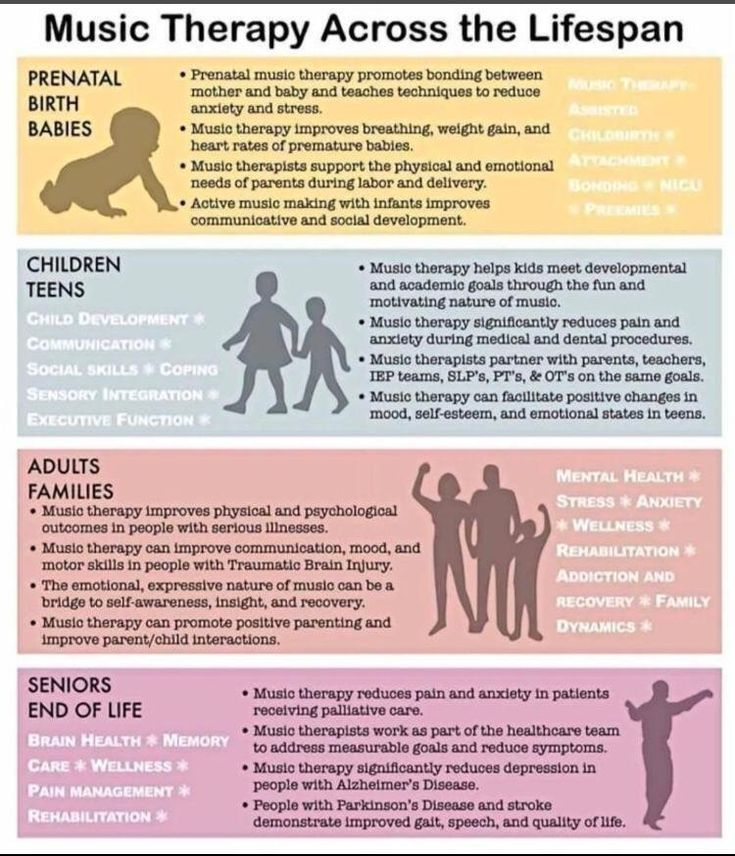 nine0003
nine0003
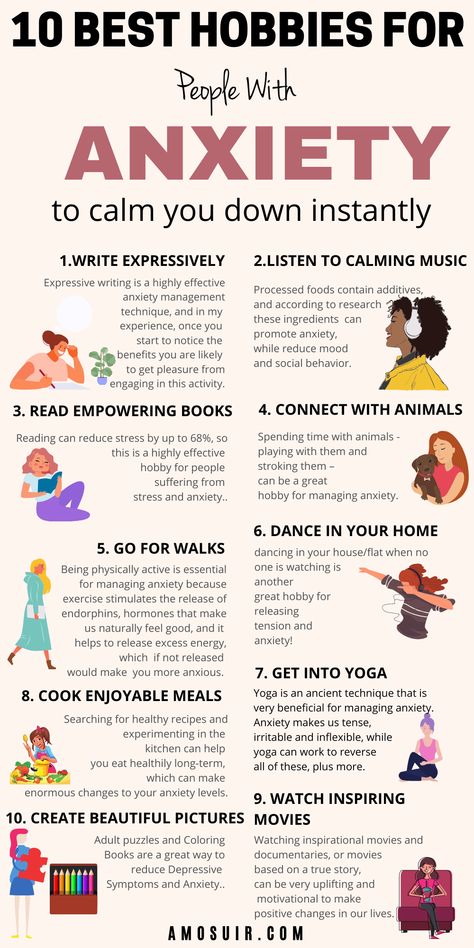
How to relieve anxiety
Study the manifestation of anxiety
Suggest suitable help
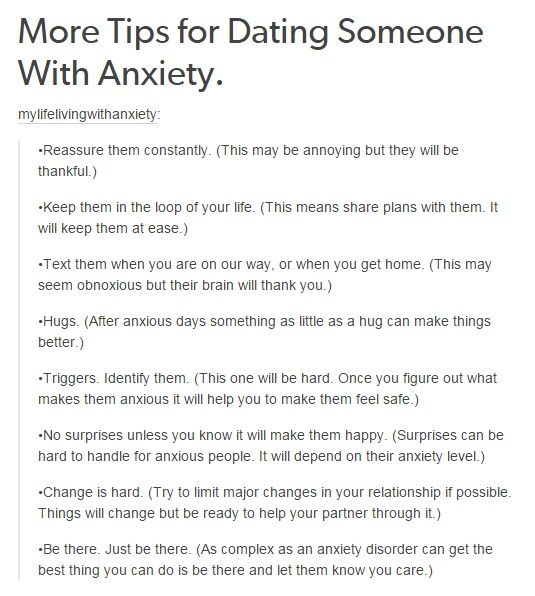 However, there are patterns that can prompt in the choice of direction. nine0003
However, there are patterns that can prompt in the choice of direction. nine0003 Learn to recognize anxiety before it manifests.
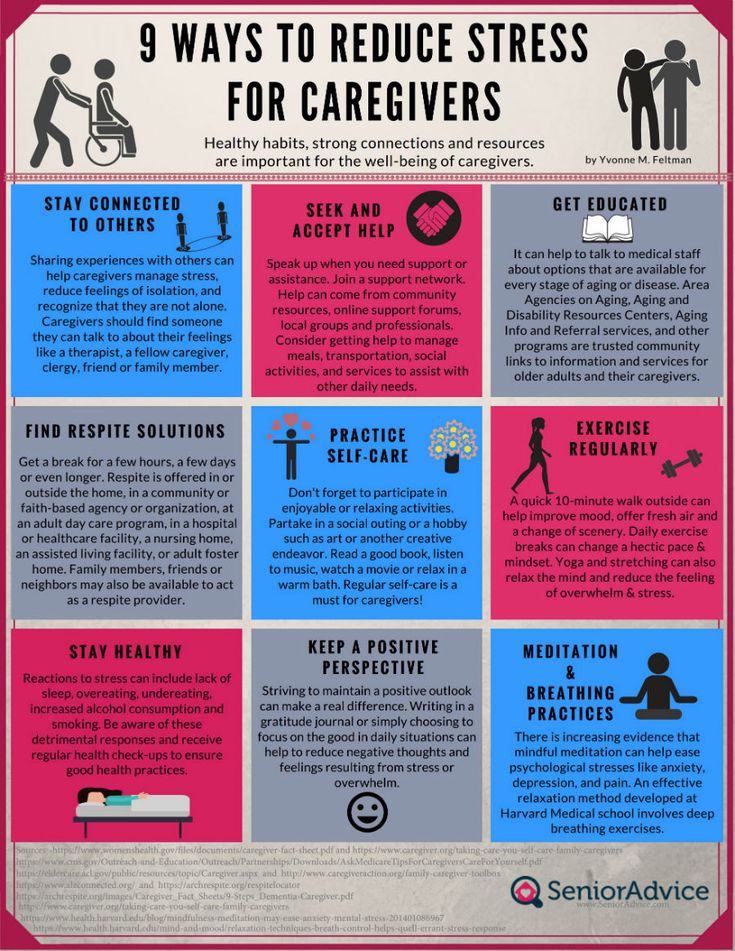 For example, by knowing the triggers for anxiety and noticing them in your partner's behavior, you can draw his attention to them. It happens that on the eve of anxiety attacks, a person starts to take work too seriously, fusses. However, we must understand that sometimes things are seen differently from the outside, and a person with an anxiety disorder may evaluate the same facts differently. It is important to find ways that will not cause objections or irritation. nine0003
For example, by knowing the triggers for anxiety and noticing them in your partner's behavior, you can draw his attention to them. It happens that on the eve of anxiety attacks, a person starts to take work too seriously, fusses. However, we must understand that sometimes things are seen differently from the outside, and a person with an anxiety disorder may evaluate the same facts differently. It is important to find ways that will not cause objections or irritation. nine0003 Help calm the mind
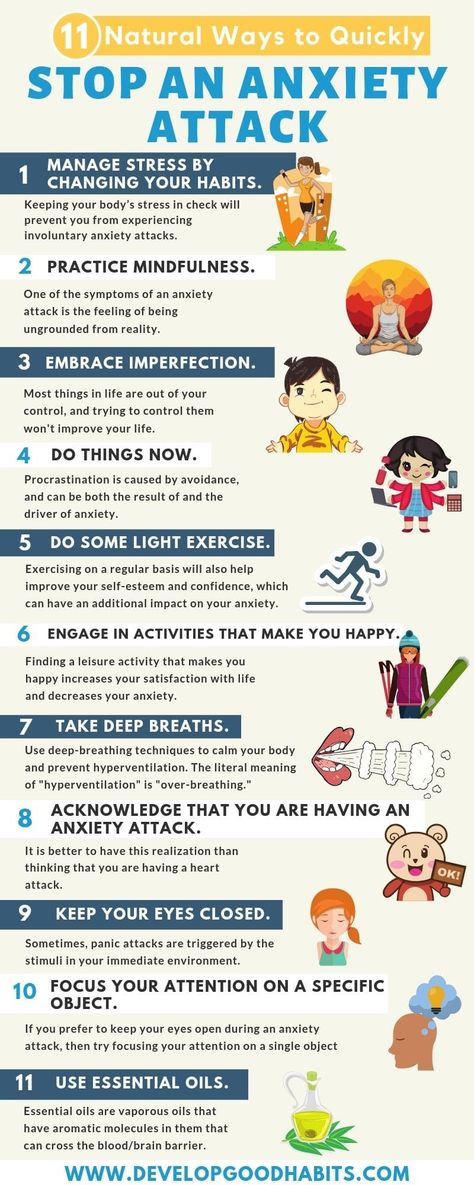
Offer help, but don't take it all on yourself
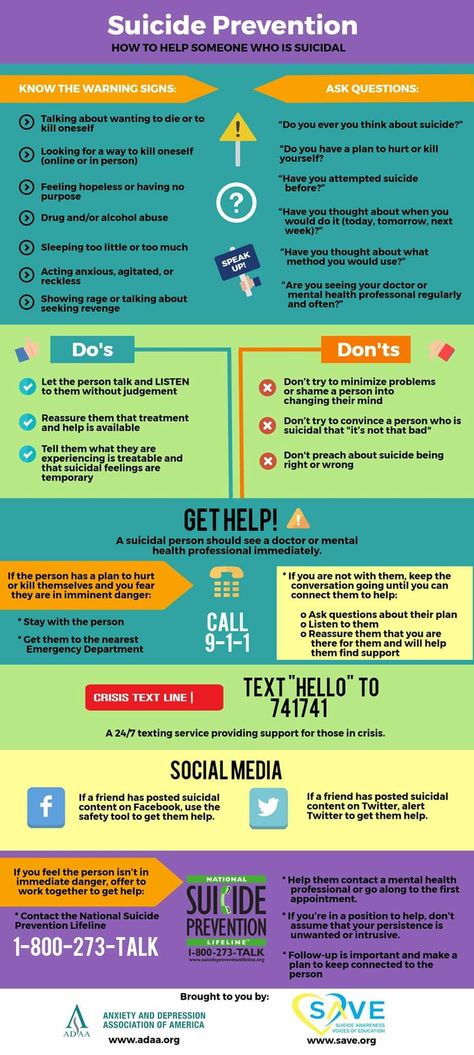 A person will remember this strategy and begin to avoid such situations even more.
A person will remember this strategy and begin to avoid such situations even more. Avoid stigma
 It does not change who your loved one is to you. Let him know about it. nine0003
It does not change who your loved one is to you. Let him know about it. nine0003 Take care of yourself
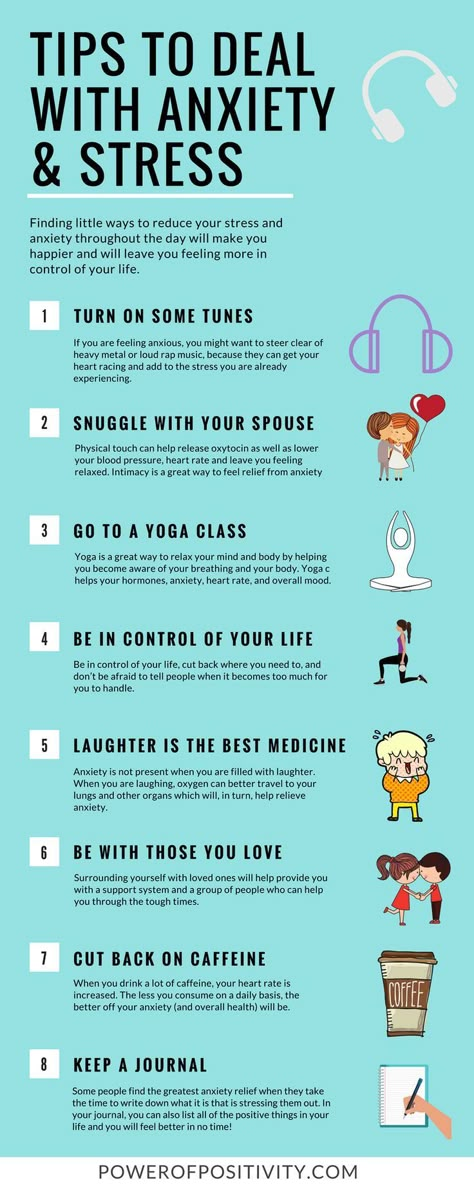
Learn more

